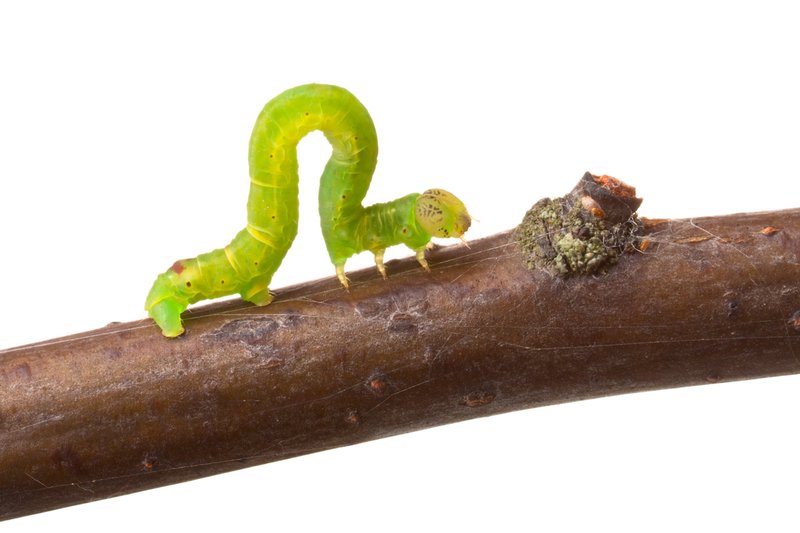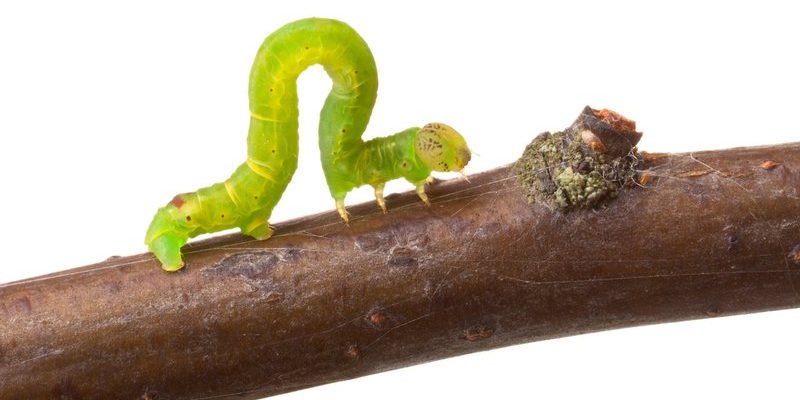
Inchworms, technically known as *Geometer moth* larvae, can be surprisingly fascinating. They come in various types, and their unique movement—bending and inching along—gives them their name. But the big question is whether they’re beneficial or harmful in farming. Let’s dive into the world of inchworms, exploring their roles and impacts on crops. We’ll weigh the pros and cons to help you understand how to deal with these tiny creatures in your garden or farm.
What Are Inchworms Anyway?
Inchworms are the larvae of geometer moths, and they have a unique way of moving that resembles measuring—their namesake. Instead of crawling like most caterpillars, they arch their backs and draw in their bodies from behind, giving them that “inching” motion. You might find them on trees, shrubs, or even vegetable plants, where they can make quite a feast.
These little guys have a range of colors and patterns, often blending in seamlessly with their surroundings. This camouflage can help protect them from predators, which is part of what makes them so intriguing. But let’s be honest—while they might look cute, they can be a gardener’s nightmare if they decide to set up camp in your vegetable patch.
Do Inchworms Harm Crops?
You might be wondering, “Are inchworms really a threat to my plants?” The answer is yes and no. Inchworms can certainly cause damage, especially when they’re in large numbers. They enjoy munching on young leaves, which can stunt the growth of your crops or even kill a plant if it’s a severe infestation.
If you’re growing leafy greens or certain fruits, inchworms can be particularly troublesome. A heavy infestation can lead to significant yield loss. Gardeners often report finding their leafy veggies stripped of leaves, leaving behind only stems. However, it’s worth noting that not all inchworms pose an equal threat. Some species are less harmful and can even contribute to the ecosystem by providing food for birds and other wildlife.
Are Inchworms Beneficial?
Now, let’s flip the script. While it’s easy to view inchworms as pests, they also have some benefits. Surprisingly, these larvae can act as a natural part of the ecosystem. For example, they’re a food source for several birds, spiders, and other predators. In this way, inchworms play a role in maintaining the balance of the food chain.
Moreover, some species of inchworms are actually less harmful than you might think. Their feeding habits can help with pruning plants, which can promote healthy growth in some cases. It’s like nature’s pruning shears—removing less healthy leaves can give room for new growth. So, while they can cause problems, they also have a place in the agricultural landscape, especially in controlled environments.
How to Manage Inchworms in Your Garden
If you discover that inchworms are invading your garden, don’t panic. There are several effective ways to manage them without resorting to harsh chemicals. Here’s how to keep these munchers in check:
- Handpicking: During early morning or late afternoon, check your plants and handpick inchworms off the leaves. It’s a bit time-consuming but effective.
- Natural Predators: Encourage birds and beneficial insects like ladybugs to visit your garden. They’ll help keep the inchworm population in check.
- Neem Oil: This natural pesticide can disrupt inchworms’ feeding. Spray it on affected plants to deter these pests.
- Row Covers: Using row covers can physically block inchworms from reaching your plants. Just make sure to secure the edges well.
Taking proactive measures can help you enjoy your garden without the worry of inchworms wreaking havoc.
When to Call in the Experts
While many gardeners can manage inchworms on their own, there are times when it might be best to call in the pros. If you find that your plants are suffering significantly or your attempts to control the infestation aren’t working, a local pest control service or agricultural extension office can provide valuable insights. They can assess your situation and recommend targeted solutions tailored to your specific problems.
Plus, professionals will have access to more potent pesticides that are still safe for the environment, ensuring you won’t harm beneficial insects in the process. Remember, it’s always better to seek help if you feel overwhelmed—it can save you time, effort, and stress in the long run.
Inchworms can be both beneficial and harmful in agriculture, and understanding their role is crucial for any gardener or farmer. While they can cause damage, they also play a part in the ecosystem and contribute to pest control when kept in balance. With thoughtful management strategies, you can minimize their impact while allowing nature to work its magic.
So, the next time you spot an inchworm in your garden, take a moment to appreciate its unique role. Whether they end up being a pest or a partner in the growth of your plants, inchworms remind us of nature’s intricate web of life. Happy gardening!

